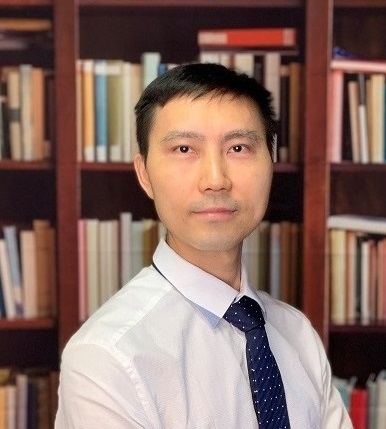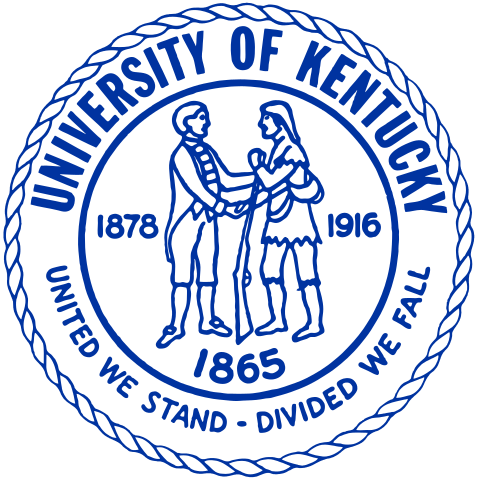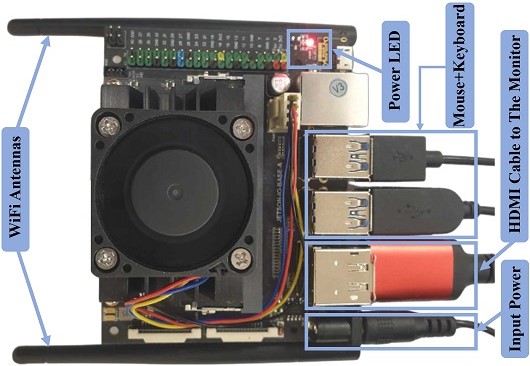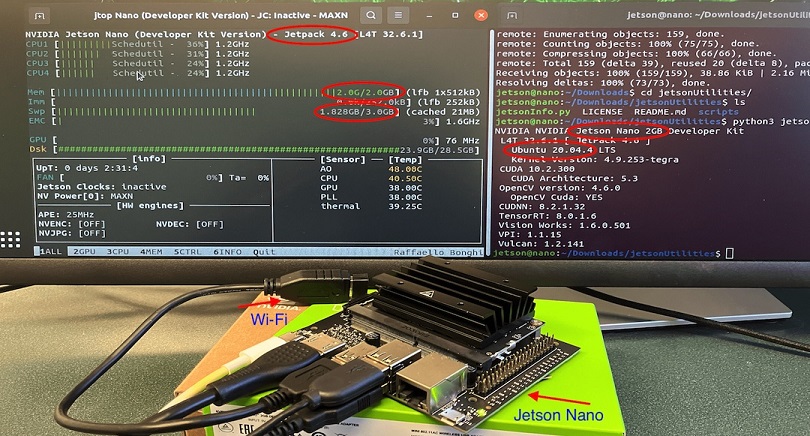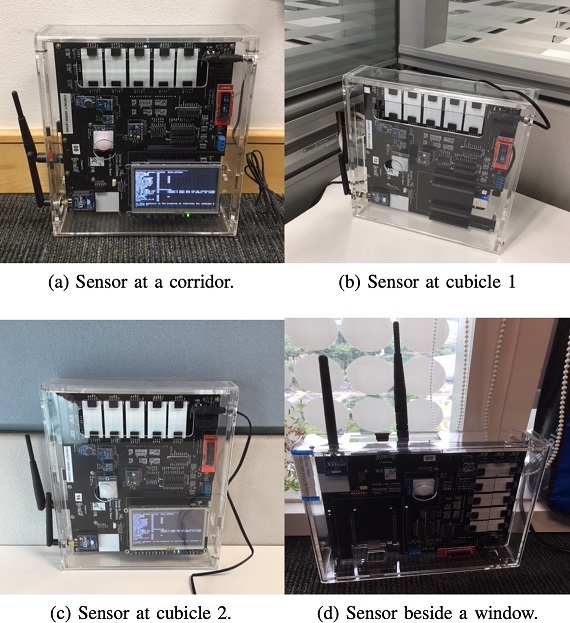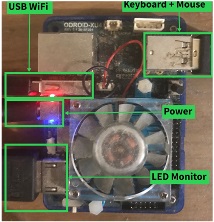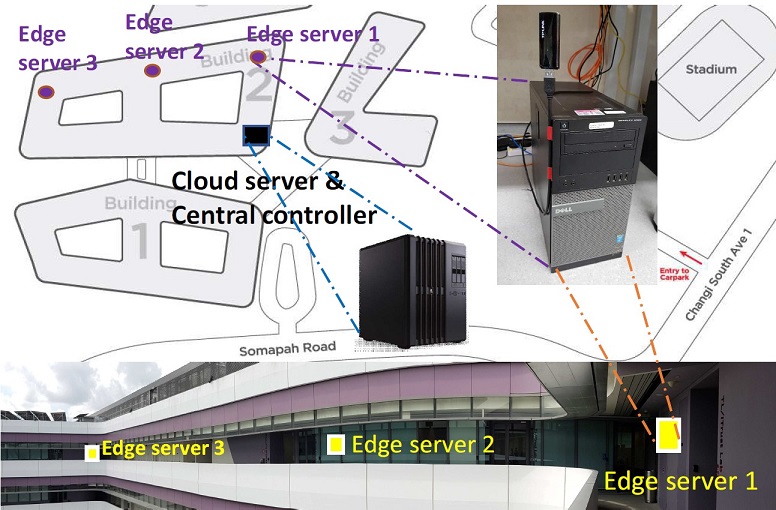 Research
Teaching
Publications
Systems
Students
Services
Misc
Research
Teaching
Publications
Systems
Students
Services
Misc
Research
My work centers on Trustworthy Artificial Intelligence for foundational, unimodal, and multimodal models. I focus on developing methods that make modern AI systems safer, more transparent, and more reliable. Current topics include:
- Explainable and Interpretable Machine Learning (XAI)
- Adversarial Robustness and Secure ML
- Privacy-Preserving and Robust Federated Learning
- Time-Series Modeling and Anomaly Detection
Prospective students: I advise PhD students in three programs: CS/EE/CPE. Please read this note before applying to my group.
Postdocs: Two fellowship opportunities are currently open, but you must be a US citizen or green card holder to be eligible.
Biosketch:
I am an Associate Professor in the Department of Electrical and Computer Engineering and Department of Computer Science (courtesy joint appointment) at the University of Kentucky. Prior to that, I was an Associate Professor in the Department of Computer Science at Missouri University of Science and Technology. I received my Ph.D. in Electrical and Computer Engineering from the National University of Singapore (ranked globally #8 by QS, #19 by Times Higher Education, and #22 (CS #3, EE #5) by U.S. News & World Report). My research is driven by the goal of making AI systems trustworthy—transparent, reliable, and robust. I am a member of AAAI and ACM, and a Senior Member of IEEE.
Teaching
- EE599/699 (UK) - Advances & Practices in Deep Learning, Fall 2025
- EE599/699 (UK) - Deep Learning Fundamentals, Fall 2025
- EE599/699 (UK) - Advances & Practices in Deep Learning, Spring 2025
- EE599/699 (UK) - Deep Learning Fundamentals, Fall 2024
- CS5001 (MST) - Introduction to Deep Learning, Spring 2024
- CS5420 (MST) - Introduction to Machine Learning, Fall 2023
- CS3402 (MST) - Introduction to Data Science, Spring 2023
- CS5001 (CS5420 since FA23) - Introduction to Machine Learning, Fall 2022
- CS3001 (CS3402 since SP23) - Introduction to Data Science, Spring 2022
- CS6407 - Internet of Things with Data Science, Fall 2021
- CS6001 (CS6407 since FA21) - Internet of Things with Data Science, Spring 2021
- CS6001 (CS6407 since FA21) - Internet of Things with Data Science, Fall 2020
- CS5001 - Internet of Things with Applied Data Science, Spring 2020
Publications
 Full list contains graphic illustrations.
Full list contains graphic illustrations.
 Google Scholar
Google Scholar
 DBLP (Download BiBTeX by clicking the 2nd icon in front of each paper)
DBLP (Download BiBTeX by clicking the 2nd icon in front of each paper)
 Code associated with papers are open-sourced.
Code associated with papers are open-sourced.
Since 2020:
- [ECAI'25] When Secure Aggregation Falls Short: Achieving Long-Term Privacy in Asynchronous Federated Learning for LEO Satellite Networks [DOI: 10.3233/FAIA250920]
M. Elmahallawy and T. Luo
28th European Conference on Artificial Intelligence (ECAI), Oct 2025, vol. 413, pp. 1099-1106.
- [PAKDD'25w] Unlocking Neural Transparency: Jacobian Maps for Explainable AI in Alzheimer's Detection [arXiv] [slides]
Y. Mustafa, M. Elmahallawy, and T. Luo
2025 PAKDD workshop on Pattern mining and Machine learning for Bioinformatics, June 2025. Lecture Notes in Computer Science, vol. 15835, pp. 229–242.
Best Paper Award [University News]
- [PAKDD'25] Enabling Heterogeneous Adversarial Transferability via Feature Permutation Attacks [arXiv] [slides]
T. Wu and T. Luo
29th Pacific-Asia Conference on Knowledge Discovery and Data Mining (PAKDD), June 2025. Lecture Notes in Computer Science, vol. 15873, pp. 39–51.
Acceptance rate: overall 24% (168/696); main track 24% (134/557).
- [BigData'24] Efficient Brain Imaging Analysis for Alzheimer's and Dementia Detection Using Convolution-Derivative Operations [arXiv] [DOI: 10.1109/BigData62323.2024.10825276]
Y. Mustafa, M. Elmahallawy, and T. Luo
IEEE International Conference on Big Data (BigData), December 2024, pp. 6420-6429.
- [PAKDD'24] Adversarial-Robust Transfer Learning for Medical Imaging via Domain Assimilation [arXiv] [slides] [DOI: 10.1007/978-981-97-2238-9_26]
X. Chen and T. Luo
28th Pacific-Asia Conference on Knowledge Discovery and Data Mining (PAKDD), May 2024. Lecture Notes in Computer Science, vol. 14648, pp. 335–349.
Acceptance rate: 18.5% (133/720) (Oral presentation)
Best Paper Runner-Up Award (0.28%; 2/720) [University News]
- [PAKDD'24] Unmasking Dementia Detection through Masking Input Gradients: A JSM Approach to Model Interpretability and Precision [arXiv] [poster version] [DOI: 10.1007/978-981-97-2259-4_6]
Y. Mustafa and T. Luo
28th Pacific-Asia Conference on Knowledge Discovery and Data Mining (PAKDD), May 2024. Lecture Notes in Computer Science, vol. 14647, pp. 75–90.
Acceptance rate: 24.3% (175/720; 133 oral + 42 poster presentations, both published the same in proceedings as full papers)
- [PerCom'24] Stitching Satellites to the Edge: Pervasive and Efficient Federated LEO Satellite Learning [arXiv] [slides] [DOI: 10.1109/PerCom59722.2024.10494442]
M. Elmahallawy and T. Luo
22nd IEEE International Conference on Pervasive Computing and Communications (PerCom), March 2024, pp. 80-89.
Acceptance rate: 14.5% (23/158)
Among the 158 full submissions, 15 (including ours) were accepted as full papers and 8 accepted as short papers.
Best Paper Runner-Up Award (1.3%; 2/158)
- [AAAI'24] LRS: Enhancing Adversarial Transferability through Lipschitz Regularized Surrogate [arXiv] [poster version] [code] [DOI: 10.1609/aaai.v38i6.28430]
T. Wu, T. Luo, and D. C. Wunsch
38th AAAI Conference on Artificial Intelligence (AAAI), vol. 38, no. 6, pp. 6135-6143, February 2024.
Acceptance rate: 19% (2342/12100)
Among the 12100 submissions to the main track, 2238 were desk-rejected.
- [AAAI'24] CR-SAM: Curvature Regularized Sharpness-Aware Minimization [arXiv] [poster version] [code] [DOI: 10.1609/aaai.v38i6.28431]
T. Wu, T. Luo, and D. C. Wunsch
38th AAAI Conference on Artificial Intelligence (AAAI), vol. 38, no. 6, pp. 6144-6152, February 2024.
Acceptance rate: 19% (2342/12100)
Among the 12100 submissions to the main track, 2238 were desk-rejected.
- [JSAC'24] Communication-Efficient Federated Learning for LEO Satellite Networks Integrated with HAPs using hybrid NOMA-OFDM [arXiv] [DOI: 10.1109/JSAC.2024.3365885]
M. Elmahallawy, T. Luo, and K. Ramadan
IEEE Journal on Selected Areas in Communications (JSAC), vol. 42, no. 5, pp. 1097-1114, May 2024.
- [Healthcom'23] Diagnosing Alzheimer's Disease using Early-Late Multimodal Data Fusion with Jacobian Maps [arXiv] [slides] [DOI: 10.1109/Healthcom56612.2023.10472348]
Y. Mustafa and T. Luo
IEEE International Conference on E-health Networking, Application & Services (Healthcom), December 2023, pp. 49-55.
- [Globecom'23] Secure and Efficient Federated Learning in LEO Constellations using Decentralized Key Generation and On-Orbit Model Aggregation [arXiv] [DOI: 10.1109/GLOBECOM54140.2023.10436841]
M. Elmahallawy, T. Luo, and M. I. Ibrahem
IEEE Global Communications Conference (GLOBECOM), December 2023, pp. 5727-5732.
- [ICIP'23] GNP Attack: Transferable Adversarial Examples via Gradient Norm Penalty [arXiv] [DOI: 10.1109/ICIP49359.2023.10223158]
T. Wu, T. Luo, and D. C. Wunsch
30th IEEE International Conference on Image Processing (ICIP), October 2023, pp. 3110-3114.
- [Pattern'23] YOGA: Deep Object Detection in the Wild with Lightweight Feature Learning and Multiscale Attention [arXiv (new)] [code] [DOI: 10.1016/j.patcog.2023.109451]
R. Sunkara and T. Luo
Pattern Recognition, vol. 139, pp. 109451, July 2023.
- [MDM'23] One-Shot Federated Learning for LEO Constellations that Reduces Convergence Time from Days to 90 Minutes [arXiv] [DOI: 10.1109/MDM58254.2023.00020]
M. Elmahallawy and T. Luo
24th IEEE International Conference on Mobile Data Management (MDM), July 2023, pp. 45-54.
- [PAKDD'23] TSI-GAN: Unsupervised Time Series Anomaly Detection using Convolutional Cycle-Consistent Generative Adversarial Networks [arXiv] [code] [DOI: 10.1007/978-3-031-33374-3_4]
S.S. Saravanan, T. Luo, and M.V. Ngo
27th Pacific-Asia Conference on Knowledge Discovery and Data Mining (PAKDD), May 2023, pp. 39–54.
Acceptance rate: 16.5% (143/869) The initial number 822 quoted in the acceptance email was later corrected to 869 in the Conference Summary Report presented at the conference closing ceremony.
- [BigData'22] AsyncFLEO: Asynchronous Federated Learning for LEO Satellite Constellations with High-Altitude Platforms [arXiv] [DOI: 10.1109/BigData55660.2022.10021101]
M. Elmahallawy and T. Luo
IEEE International Conference on Big Data (BigData), December 2022, pp. 5478-5487.
Acceptance rate: 19% (122/633; full paper)
- [ESORICS'22] Long-Short History of Gradients is All You Need: Detecting Malicious and Unreliable Clients in Federated Learning [arXiv] [video] [code] [DOI: 10.1007/978-3-031-17143-7_22]
A. Gupta, T. Luo, M. V. Ngo, and S. K. Das
The 27th European Symposium on Research in Computer Security (ESORICS), September 2022, pp. 445-465.
Acceptance rate: 19%
- [ECML PKDD'22] No More Strided Convolutions or Pooling: A New CNN Building Block for Low-Resolution Images and Small Objects [arXiv] [video] [code] [DOI: 10.1007/978-3-031-26409-2_27]
R. Sunkara and T. Luo
European Conference on Machine Learning and Principles and Practice of Knowledge Discovery in Databases (ECML PKDD), September 2022, pp. 443-459.
Acceptance rate: 26% (242/932)
- [TIOT'21] Adaptive Anomaly Detection for Internet of Things in Hierarchical Edge Computing: A Contextual-Bandit Approach [video] [DOI: 10.1145/3480172]
M.V. Ngo, T. Luo, and Q.S. Quek
ACM Transactions on Internet of Things (TIOT).
Vol. 3, No. 1, pp. 1-23, October 2021.
- [AAAI'20] COBRA: Context-aware Bernoulli neural networks for reputation assessment [arXiv]
L. Zeynalvand, T. Luo, and J. Zhang
34th AAAI Conference on Artificial Intelligence (AAAI), New York, NY, Feb 2020, pp. 7317-7324.
Acceptance rate: 20%
- [AAAI'20] Mechanism design with predicted task revenue for bike sharing systems [arXiv]
H. Lv, C. Zhang, Z. Zheng, T. Luo, F. Wu and G. Chen
34th AAAI Conference on Artificial Intelligence (AAAI), New York, NY, Feb 2020, pp. 2144-2151.
Acceptance rate: 20%
Prior to 2020 (partial list):
- [IoT-J'19] Improving IoT data quality in mobile crowd sensing: A cross validation approach [DOI: 10.1109/JIOT.2019.2904704]
T. Luo, J. Huang, S. S. Kanhere, J. Zhang, and S. K. Das
IEEE Internet of Things Journal (IoT-J), vol. 6, no. 3, pp. 5651-5664, June 2019.
A cross validation (CV) approach that seeks a validating crowd to ratify the quality of sensor data contributed by the a contributing crowd. By making an exploration-exploitation tradeoff, a unified solution is offered to two disparate cases: reinforce obscure truth and discover hidden truth. (See illustration.)
- [ICC'18] Distributed anomaly detection using autoencoder neural networks in WSN for IoT [DOI: 10.1109/ICC.2018.8422402]
T. Luo and S. Nagarajan
IEEE International Conference on Communications (ICC), May 2018.
This paper is the first that introduces autoencoder neural networks (ANN), a deep learning model, into wireless sensor networks (WSN) for distributed anomaly detection. It contradicts the general belief that deep learning is not suitable for WSN, by (1) making deep learning extremely shallow and (2) dividing and allocating computation load to sensors and the IoT cloud with a two-part algorithm. (See illustration.)
- [AAIM'18] Achieving location truthfulness in rebalancing supply-demand distribution for bike sharing [DOI: 10.1007/978-3-030-04618-7_21]
H. Lv, F. Wu, T. Luo, X. Gao, and G. Chen
12th International Conference on Algorithmic Aspects in Information and Management (AAIM), pp. 256-267, December 2018.
Best Student Paper Award (2%; 1/50)
- [ComMag'17] Sustainable incentives for mobile crowdsensing: Auctions, lotteries, and trust and reputation systems [DOI: 10.1109/MCOM.2017.1600746CM]
T. Luo, S. S. Kanhere, J. Huang, S. K. Das, and F. Wu
IEEE Communications Magazine, vol. 55, no. 3, pp. 68-74, March 2017.
This survey paper provides a technical overview and analysis of six incentive mechanism design frameworks: auction, lottery, trust and reputation system, bargaining game, contract theory, and market-driven mechanism.
- [TIST'16] Incentive mechanism design for crowdsourcing: an all-pay auction approach [pdf] [DOI: 10.1145/2837029] [Appendix]
T. Luo, S. K. Das, H-P. Tan, and L. Xia
ACM Transactions on Intelligent Systems and Technology (TIST), vol. 7, no. 3, pp. 35:1-26, February 2016.
The most adopted auctions in incentive mechanism design so far have been winner-pay auctions (WPA), in which only winners (who outbid others and will therefore receive reward) need to pay their bids. By contrast, all-pay auctions (APA) require all the participants regardless of who win the auction to pay their bids. This apparently sounds unreasonable, but when applied to crowdsourcing, it makes perfect sense and gains two important advantages over WPA. (This paper builds on our INFOCOM'14 paper.)
- [TMC'16] Incentive mechanism design for heterogeneous crowdsourcing using all-pay contests [DOI: 10.1109/TMC.2015.2485978] [Appendix]
T. Luo, S. S. Kanhere, S. K. Das, and H-P. Tan
IEEE Transactions on Mobile Computing (TMC), vol. 15, no. 9, pp. 2234-2246, September 2016.
Despite that crowdworkers
are typically heterogeneous (in abilities, costs, etc.), the daunting challenge of modeling and analyzing such scenarios has restricted researchers to choosing homogeneous models in which all the worker types follow a single, common distribution (Bayesian belief). This paper addresses this challenge using an asymmetric all-pay auction model with a prize tuple. Not only does it achieve better performance, but it also uncovers a counter-intuitive and interesting property called strategy autonomy, in which the asymmetric equilibrium collapses into a symmetric one.
- [INFOCOM'15] Crowdsourcing with Tullock contests: A new perspective [DOI: 10.1109/INFOCOM.2015.7218641]
T. Luo, S. S. Kanhere, H-P. Tan, F. Wu, and H. Wu
The 34th IEEE International Conference on Computer Communications (INFOCOM), April 2015, pp. 2515-2523.
Acceptance rate: 19% (316/1640)
Best Paper Award finalist (0.3%; 5/1640)
What is a Tullock contest? Think it as a lucky draw! While auctions have dominated the realm of mechanism design for decades, this paper suggests Tullock contests as a better alternative, on the basis that it is less competitive and more conducive to larger participation.
- [INFOCOM'14] Profit-maximizing incentive for participatory sensing [DOI: 10.1109/INFOCOM.2014.6847932] [Much enhanced version: ACM TIST'16]
T. Luo, H-P. Tan, and L. Xia
The 33rd IEEE International Conference on Computer Communications (INFOCOM), April 2014, pp. 127-135.
Acceptance rate: 19% (319/1650)
All-pay auction + adaptive prize/reward (see the short abstract of TIST'16 or an illustration).
- [ICTC'12] Enhancing Responsiveness and Scalability for OpenFlow Networks via Control-Message Quenching [DOI: 10.1109/ICTC.2012.6386857]
T. Luo, H-P. Tan, P. C. Quan, Y-W. Law, and J. Jin
International Conference on Infocom Technology Convergence (ICTC), October 2012, pp. 348-353.
Best Paper Award (0.7%; 3/423)
- [CommLett'12] Sensor OpenFlow: Enabling Software-Defined Wireless Sensor Networks
T. Luo, H-P. Tan, and Q.S. Quek
IEEE Communications Letters, vol. 16, no. 11, pp. 1896-1899, November 2012.
This work is the first that introduces software-defined networking (SDN) into wireless sensor networks, where a Sensor OpenFlow protocol within a SD-WSN architecture was proposed.
- [TMC'12] Energy-Efficient Strategies for Cooperative Multi-Channel MAC Protocols [Bib]
T. Luo, M. Motani, and V. Srinivasan
IEEE Transactions on Mobile Computing (TMC), vol. 11, no. 4, pp. 553-566, April 2012.
 Full list contains graphic illustrations.
Full list contains graphic illustrations.
 Google Scholar
Google Scholar
 DBLP (Download BiBTeX by clicking the 2nd icon in front of each paper)
DBLP (Download BiBTeX by clicking the 2nd icon in front of each paper)
 Code
Code
Systems and Testbeds
In addition to my theoretical research, I believe it is equally invaluable to develop real systems or testbeds to validate theoretical innovations in a more convincing manner.
Students
Prospective students: I advise PhD students in CS/EE/CpE. Please read this note before applying to my group.
Postdocs: Two fellowship opportunities are currently open, but you must be a US citizen, national, or green card holder to be eligible.
- PhD students - current:
Jinchi Zhu, since FA25
Ahsan Imran, since FA25
Yifei Liu, since SP25
Qin Su, since FA24
Jiadi Du, since FA22
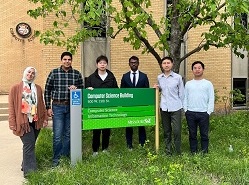
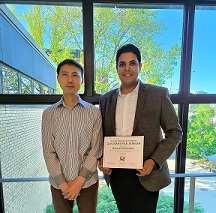
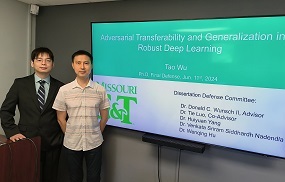
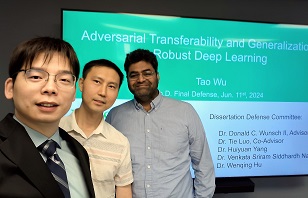
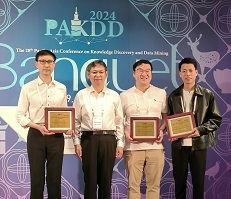
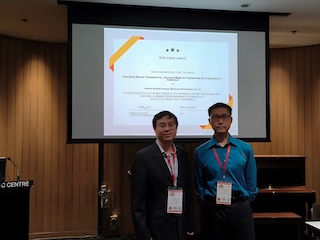
- PhD students - graduated:
  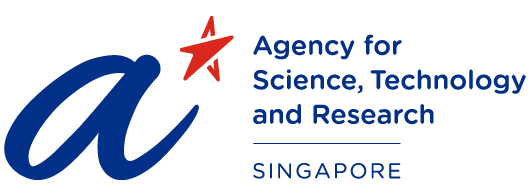 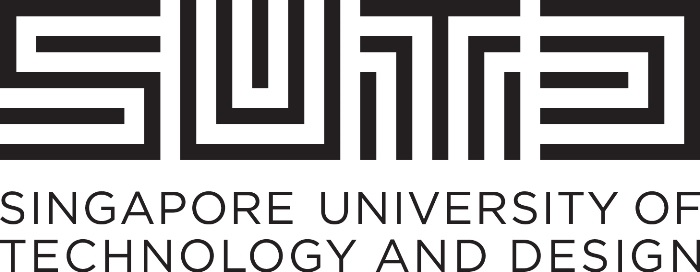
United States:
- Mohamed Elmahallawy, Jan 2022--Feb 2024 (now Assistant Professor in the Computer Science and Cybersecurity Department at Washington State University, Tri-Cities, since Aug 2024)
Thesis: Secure and privacy-preserving federated learning with rapid convergence in LEO satellite networks
- Tao Wu, Aug 2021--Jun 2024 (now Research Scientist in Multimodal Machine Learning at ByteDance (字节跳动) in San Jose, California, since Nov 2024)
Thesis: Adversarial Transferability and Generalization in Robust Deep Learning
Singapore:
- Leonit Zeynalvand (co-supervised with Prof. Jie Zhang from Nanyang Technological University), 2016-2021; currently Research Scientist at A*STAR
Thesis: A holistic approach to trust and reputation management in big data
- Mao V. Ngo (co-supervised with Prof. Tony Quek from Singapore University of Technology and Design), 2018-2020; currently System Architect at SUTD
Thesis: Mobile edge computing with machine learning for the Internet of Things
- Master's students - graduated:
Raja Sunkara (Missouri University of Science and Technology), Aug'21-May'23
Thesis: Computer vision in adverse conditions: small objects, low-resolution images, and edge deployment
Shyam Sundar Saravanan (Missouri University of Science and Technology), Jan'21-May'23
Thesis: Time series anomaly detection using generative adversarial networks
Professional Services
- Editorial Board Member / Area Editor / Guest Editor:
IEEE Transactions on Services Computing, Guest Edior, Special Issue on Generative AI and Large Vision and Language Models in Service Computing (GenAI and LVLM), 2025.
Elsevier Ad Hoc Networks, Area Editor, 2019-present.
Elsevier Pervasive and Mobile Computing, Area Editor, 2021-present.
Annual Review of Artificial Intelligence, Associate Editor, 2021-present.
Wireless Communications and Mobile Computing (Wiley), Associate Editor, 2018-2024.
Telecom, Associate Editor, 2018-present.
Sensors, Guest Editor, Special Issue on Localization and Tracking for Internet of Things, 2022-2023.
Mobile Information Systems, Guest Editor, Special Issue on Big Data Management and Analytics for Mobile Crowd Sensing, 2015-2016.
Journal of Sensor and Actuator Networks, Guest Editor, Special Issue on MAC Protocols in Wireless Sensor Networks, 2015-2016.
- Advisory Board Member: Sci: 2018-2024.
- External Reviewer / Evaluator:
Faculty Promotion & Tenure, University of Washington, 2021
ORAU Ralph E. Powe Junior Faculty Award, 2024
- Grant Reviewer / Panelist:
National Science Foundation (NSF), Panelist, 2021
U.S. Department of Energy (DOE) ASCR, Panelist ("Advances in AI for Science"), 2024 || Reviewer, 2022
U.S. Department of Energy (DOE) Idaho National Lab, Reviewer, 2023
Euregio Science Fund (EU), Reviewer, 2021
- PhD Thesis Examiner:
Deakin University (Australia), 2023-2024, 2025-2026
DA-IICT (India), 2023
- Conference Leadership Roles
- Program Committees:
2026: AAAI (Senior PC) | IJCAI
2025: ECML PKDD | WoWMoM | ICC (Machine Learning for Communications and Networking (MLCN) Track)
2024: AAAI | ICC (Machine Learning for Communications and Networking (MLCN) Track)
2023: WoWMoM | ICC | WCNC
2022: INFOCOM | WoWMoM | ICC | WCNC
2021: INFOCOM | AAAI | WoWMoM | ICC | WCNC | MASS | PST
2020: INFOCOM | WoWMoM | ICC | WCNC | ComNet-IoT | PST
2019: INFOCOM | WoWMoM | ICC | WCNC | MASS | MSWiM | PerCom CASPer | ComNet-IoT | IWCMC-ML | PST
2018: INFOCOM | WoWMoM | MASS | Globecom | ICCCN | PerCom CASPer | ComNet-IoT | PST
2017: DCOSS | PerCom CASPer | UIC //
2016: WCNC | MobiSPC | AAMAS Trust | PST | BIH //
2015: WCNC | MobiSPC | SenseApp | ICCVE | CCBD | IBDC //
2014: WCNC | SenseApp | ICCVE | IOV //
2013: WCNC | SenseApp | ICCVE | AMI | IoT-SC //
2012: ICCVE | KICSS
- Session Chair:
AAAI 2024: (i) Machine Learning (ii) Computer Vision
PAKDD 2023: Federated Learning
IEEE ICC 2023: Learning & Networks
IEEE INFOCOM 2022: Machine Learning
IEEE INFOCOM 2021: Attack and Anomaly Detection
IEEE INFOCOM 2020: Internet of Things
- Journal Reviewer (40+ journals; Top 1% Reviewer in Computer Science 2017-2018):
IEEE: TPAMI, TNNLS, TKDE, TAI, TDSC, TMC, TWC, ToN, IOT-J, JSAC, etc.
ACM: TOSN, TOPS, TIST, TOIT, etc.
Elsevier: Pattern Recognition, etc. // Springer: AI Review, etc.
- Conference Reviewer (non-TPC):
ICML 2026, KDD 2026, NeurIPS 2025, KDD 2025 (Commendable Reviewer), MICCAI 2025
SECON 2024, ICNP 2021, MSWiM 2018, PIMRC 2018, Globecom 2017, ICDM 2016, KDD 2015, MASS 2014, ICC 2013, Globecom 2012, DySPAN 2010, INFOCOM 2009, SECON 2009, Globecom 2009, ICC 2009, INFOCOM 2008, ICDCS 2008, SECON 2008, MASS 2008, Globecom 2008, MobiCom 2007, MSWiM 2007, MSWiM 2006...
Miscellaneous
|
